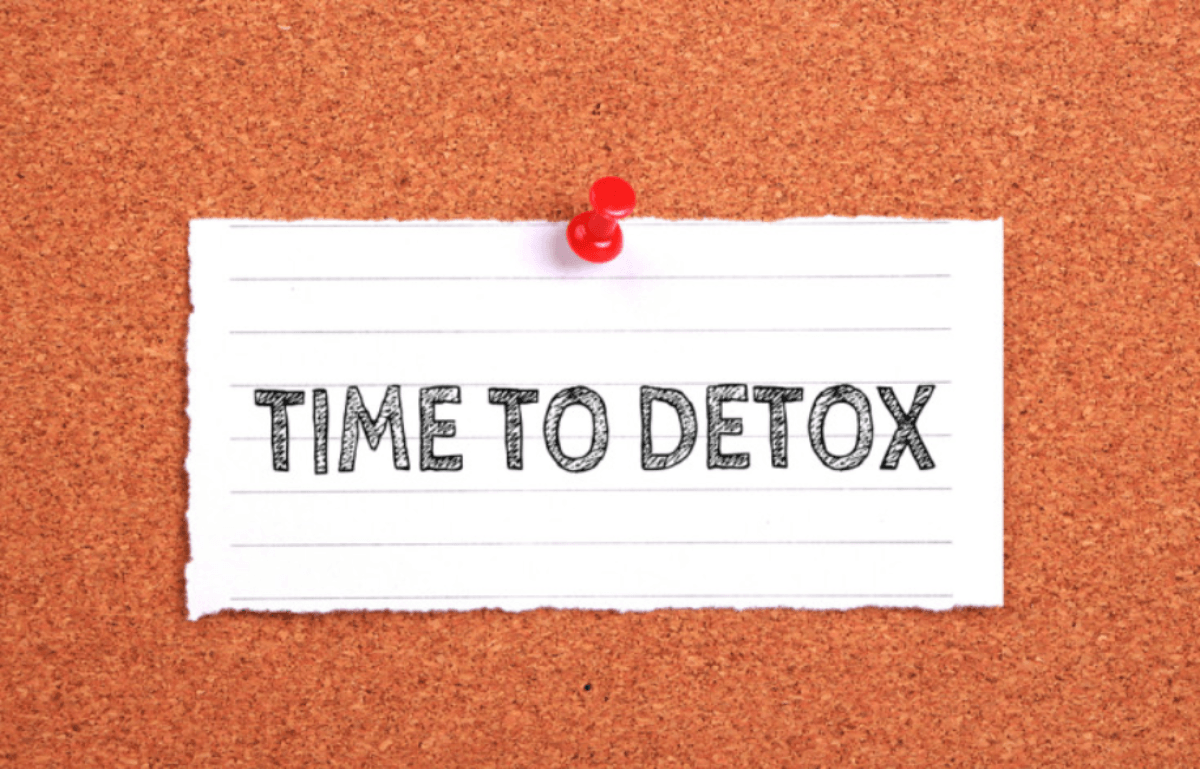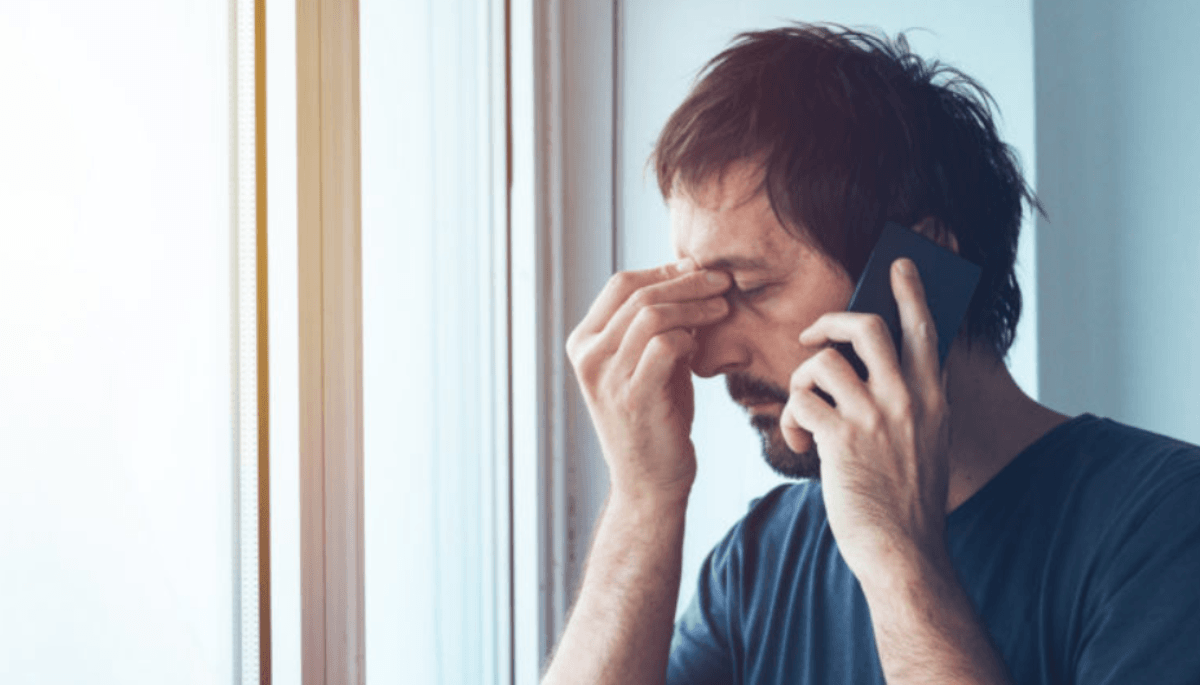 One of the hardest things to do is admit that you have a drug addiction problem. Usually, addiction comes with feelings of frustration, shame, hopelessness and even stigma. What’s worse, drug abuse can destroy relationships with friends and family leaving you feeling alone and unwanted. This makes it even more difficult to speak out your problems, let alone find help.
One of the hardest things to do is admit that you have a drug addiction problem. Usually, addiction comes with feelings of frustration, shame, hopelessness and even stigma. What’s worse, drug abuse can destroy relationships with friends and family leaving you feeling alone and unwanted. This makes it even more difficult to speak out your problems, let alone find help.
And while you might have thought of getting sober, it doesn’t work when you are only relying on your strong will. Unfortunately, getting over your addiction comes with a host of mild to severe withdrawal symptoms that warrant the help of professionals. To get better, you need to find a way into a treatment program first. This is where drug detox hotlines come in handy.
Through these hotlines, you can find out everything you need to know about detox. They will also guide you to rehab facilities in your area to get you started. In this piece, we shall look into what these drug detox hotlines do, if you need to call a hotline and the addiction treatment options on the table once you’ve gone through detox.
Note: detox is not a complete treatment; instead, it is the first stage of addiction treatment. You need to undergo treatments and therapies for a minimum of 30 days before you can go into recovery.
Contents
What are drug detox hotlines?
Because of the feelings of shame and stigma surrounding addiction, you aren’t comfortable talking to someone face to face. And these feelings are valid because often people are judged. But where the society fails, the drug detox hotlines thrive. They are described as free telephone numbers available for individuals to get information on drug detox and general addiction. They are often handled by professionals who have been affected by addiction directly or indirectly. Since they’ve been in your shoes, they will not pass judgment. Instead, they will present you with the facts as is and hope that you act on them.
It’s refreshing to note that these hotlines are confidential, and your identity remains anonymous. And the fact that it is free means that you can get the help you need without being rushed. Remember, the whole point of these hotlines is to provide you with answers to your questions.
Support loved ones as well
The thing about addiction is that it affects every aspect of an addict’s life, including those around them. Usually, friends and family are the first ones to call you out on your addiction. They may point out what you are too scared to face or admit to yourself. And while they may want to help, they too may be limited with information. Luckily, the drug detox hotline is also available to them.
Aside from getting information on detox, the hotlines can also help them understand their feelings of anger, frustration and blame. The hotline representatives will advise them on the best support programs they can start on to get help. Alternatively, they can choose treatment programs that have family therapy as part of treatment.
Free drug detox hotlines
Below are the top drug detox hotline options you can call.
- SAMHSA – call them through 1-800-662-4357. They are open 24/7 and support Spanish as well.
- National Suicide Prevention – call them at 1-800-273-8255 when you need emotional support. They are also available 24/7 and can provide you with information on physical and mental illness related to substance abuse.
- Lines for Life – they are available at 800-273-8255. Alternatively, you can text ‘273TALK’ to 839863. The service targets different groups of people, including those with an addiction, the youth, the elderly, veterans, and their families.
- Boys Town – you can call them at 800-448-3000. You can also reach the team by sending the ‘VOICE’ to 20121. The hotline is available between 12 pm, and 12 am. Also, they support over 140 languages. You can ask any question over the text.
- IMALive chatline – through this chatline, you can talk to a trained volunteer. They are great for when you are nervous and need someone to talk to. You can visit their website for the chat option.
Should you call a drug detox hotline?
 Now, how does one know it is time to call a hotline? Well, anytime you think you or a loved one may an addiction problem is the right time. Since the hotlines are free and keep identities anonymous, you’ve got nothing to lose.
Now, how does one know it is time to call a hotline? Well, anytime you think you or a loved one may an addiction problem is the right time. Since the hotlines are free and keep identities anonymous, you’ve got nothing to lose.
If you are still on the fence about the addiction problem, the hotline representative can help you make sure. Some signs to look out for include:
- Behavioural changes. These could be subtle or drastic.
- Consuming more of the drug for longer periods.
- Continued substance use even after problems develop at home, work, or school.
- Using the drug even after it causes mental and physical health problems.
- Quitting things or cutting back on activities that hinder drug use.
- Getting defensive about drug use.
- Using or drinking alone.
- Using or drinking even while in dangerous situations.
- Someone experiences withdrawal symptoms when they stop using.
- Not paying attention to their hygiene.
- Wanting to stop but cannot.
- The body cannot function normally without it.
- Spending a lot of time using and recovering from the drug.
- Strong urges to use.
- Trying to reduce the dosage and failing every time.
- Weight loss.
- Drug use interferes with responsibilities at home, work or school.
You can trust the support and information from drug detox hotlines. They will guide you to the best resources depending on your needs.
Note: drug detox hotlines aren’t equipped with emergency kits. As such, if you find yourself in a physical or mental health emergency, call 991.
Drug treatment options
You’ve probably thought of having detox at home. And while it is an option, there are several reasons why you shouldn’t.
- It is not safe.
- The process rarely works.
- Professional detoxification is comfortable and more effective.
Now, as we’ve mentioned, detox is not drug addiction treatment. Instead, it only works on drug dependency and is used to rid the body of the drug and the withdrawal symptoms. For you to recover from drug addiction, you need to undergo physical and psychological therapy that will address the changes the drug made to your body. Moreover, drug addiction treatment will deal with the drug cravings and help reduce your chances of a relapse.
Process of detox
The first stage of detoxification is intense of most patients. As such, psychiatric and medical staff are ways around to offer effective support. For instance, if you use heroin, a couple of hours after the last dose, you will start experiencing withdrawal symptoms. These include:
- Agitation
- Muscle aches
- Sweating
- Anxiety
- Excessive yawning
- Runny nose
- Insomnia
- Watery eyes
Things to handle during detox
And even though these symptoms are not dangerous, they are uncomfortable. Because of these symptoms, it is beneficial to get medical care and psychiatric help during the detox process. Several problems can come up during this stage. The detox needs will be handled in order of their urgency until you are stable. Some issues that could arise during detox include:
- Violence: some substances increase violent behaviour in addicts. For instance, those who use bath salts or synthetic cathinones are at the risk of hurting themselves and others. Such patients require sedation or restraining for protection of themselves and those around them. However, stern measures only apply when the patient cannot control their aggression.
- Psychosis symptoms: these are complications that manifest as a result of stopping the use o cocaine and other drugs. If you use a lot of cocaine, you will start being paranoid and eventually experience psychosis. Aside from being a side effect of cocaine use, psychosis can manifest as a result of a co-occurring mental health problem like schizophrenia. Someone who has psychosis becomes erratic ad highly unpredictable. The issue must be addressed quickly to treat the patient accordingly before proceeding to other treatments.
- Injury: sometimes, patients usually come in with some injuries. They get the injuries from being sexually or physically assaulted while they were intoxicated. For instance, PCP (phencyclidine is a drug that gives someone the feeling of being super strong and invulnerable. Because of this, the individuals will put themselves in harm’s way since they think they will not get hurt in the process. Moreover, they are a high risk of committing suicide which can result in severe injuries if the suicide attempt fails. Any physical injury should be treated before the drug addiction treatment kicks in.
- Medical illness: some individuals who suffer from chronic pain take prescription opioid painkillers. But with time, they could get addicted to the opioids. And as they start to detox from the opioids, they will experience their severe pain as well as withdrawal symptoms. With such patients, it’s important that their medical history is known and the pain is managed appropriately throughout the detox process.
- A threat to themselves: Withdrawal from opioids and other substances that cause severe depression can be linked to attempted suicides. Patients with suicidal thoughts or behaviours should be watched at all times. After the depression passes, they will embark on treating withdrawal symptoms and later the addiction.
Withdrawal symptoms
Withdrawal symptoms manifest when you stop using a drug suddenly. Though these symptoms are rarely life-threatening, they are uncomfortable. But even then, they vary in intensity depending on a couple of factors including:
- How long you’ve been addicted: daily substance abuse can lead to increased tolerance and consequently, severe withdrawal symptoms during detox.
- The type and combination of drugs used: dependency on a couple of drugs can lead to one experiencing a unique set of withdrawal symptoms. The symptoms may exacerbate each other.
- The dosage of drugs one uses: tolerance builds in the body with time. As it increases, you need to take in more of the drug to experience the same high as before. The higher the doses you take, the more severe the symptoms get.
- The presence of co-occurring mental and physical disorders: if a patient suffers from a mental health disorder, including depression and anxiety, or even physical pain, they could be made worse with the withdrawal symptoms.
- The half-life of your drug of choice: generally, if the drug abused is short-acting, the withdrawal symptoms will manifest quicker after your last dose. But on the flip side, if it is long-lasting, the withdrawal symptoms might kick in after a couple of days
Some of the common withdrawal symptoms that manifest with the use of different drugs include:
- Mood disturbance: this refers to irritability, mood swings, or agitations.
- Sleep disturbances: it includes intense fatigue as well as insomnia.
- Physical problems: thy may include tremors, sweating, chills, shaking. One might even experience flu-like symptoms like vomiting, nausea, headaches, and a runny nose.
- Cravings: these are the strong desires to acquire the drugs and put an end to the withdrawal symptoms.
Different drugs cause different withdrawal symptoms in addition to the above symptoms.
Types of drug detox
There are several types of detox. The type of detox you are put in will depend on the substance abused, and the withdrawal symptoms experienced. The choices include:
- Outpatient detox: very few rehab facilities will recommend this. However, it proves to be a good option for individuals whose addiction is not severe. Such patients can work with regular appointments for medication and treatment. In some instances, when an individual is pressed for cash can continue going to work.
- Inpatient detox: this treatment is recommended to prevent relapse and ensure they have medical attention in case of a medical emergency. Many patients are on the inpatient or residential detox option.
Method of detox
Like the type of detox used, the method of detox used depends on the drug one is on. No specific method s perfect since it depends on the unique situation someone is in. the detox approaches available include:
- Long-term medicated detox
- Short-term medicated detox
- Cold-turkey detox
With cold-turkey detox, the patient stops using all drugs and doesn’t get medication to help with the withdrawal symptoms. Instead, they only get 24-hour medical attention to help in emergencies. Otherwise, the patient will experience the withdrawal symptoms to their fullest. For some drugs, the symptoms are intense and last for weeks. On the other hand, some are mild and only last a couple of days.
For the patients who prefer medical detox, they will have to stop using the drug. But as the withdrawal symptoms kick in, they start on a short term medication plan to control the symptoms during the process. For instance, anyone who has insomnia can get a prescription of sleep medication (non-addictive). Individuals who experience muscle pains and bone aches will get pain killers. The medical staff overseeing the process are always on standby to ensure the patient has everything they need to ease their discomfort.
Patients detoxing from alcohol take benzodiazepines regularly as the symptoms manifest. The drug helps in preventing deliriums and seizures. But given their cross-tolerance with alcohol, the medication prescription is not long-term.
For patients undergoing opioid drug addiction treatment, they get alternative long-term medication. For instance, those dependent on methadone get a prescription dose of naloxone and buprenorphine to manage their withdrawal symptoms. Over time, the medical staff will reduce the medication until the patient is drug-free.
Regardless of the method you choose, it should be under medical supervision.
What next?
Addiction is a struggle, and stopping will not be easy. However, with the right detox plan and help, it is possible to get clean and live a quality life. But first, you need to get out of your way and make that call. Learn about the detox resources available in your area.
Calling the drug detox hotline does not mean you commit to anything. But it would be great if you chose to detox immediately before the situations change.
FAQs
What is the cost of detox?
The cost of detoxification depends on the type of detox you take. Generally, inpatient or residential detox is more expensive than outpatient detox. This is because, with the former, you use more resources and get 24-hour care.
How fast will I go through the detox process?
The length of time it takes depends on a couple of factors, including the amount of drugs you use and how many drugs you abuse. Generally, the process takes a couple of days or a few weeks. After the detox process, you ought to start on a drug addiction treatment.
Can I detox at home?
Yes, you can. There are home detox kits available. However, getting professional help during detox reduces your chances of a relapse. Also, in case of an emergency, you will be well taken care of.
Will I lose my job for going on a drug detox?
No, you will not. Some laws protect you from losing your job based on the fact that you are undergoing drug addiction treatment. But even with that, you need to come clean to your employer and ensure that you handle all your projects before you leave for treatment.
